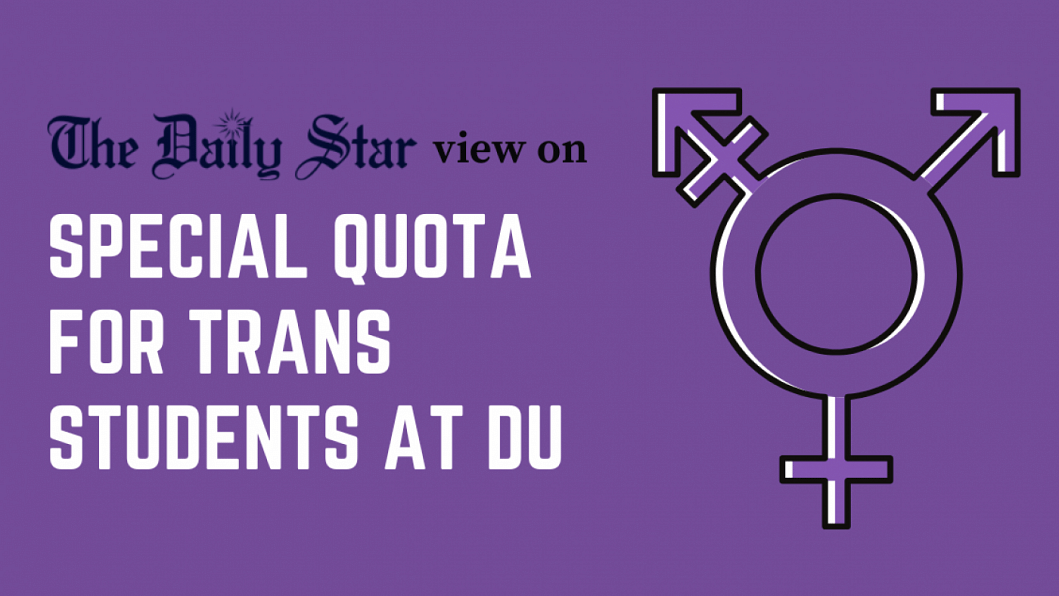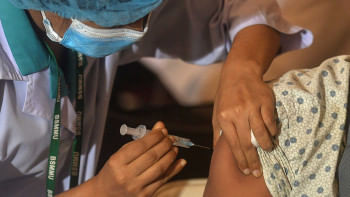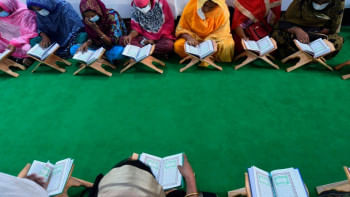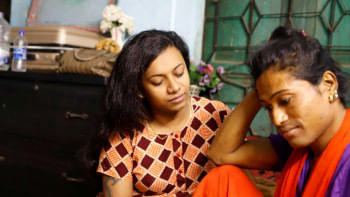A commendable initiative, indeed!

We applaud Dhaka University for taking the decision to include a special quota for transgender students in its undergraduate programmes. It has done so in an attempt to promote diversity among its student body, recognising the systematic stigmatisation faced by the community. This decision comes on the heels of another notable development in recent days, when Ankita Islam became the first openly trans woman to be admitted to the university to pursue her MBA.
The decision is significant because the transgender community in Bangladesh suffers from a range of exclusionary practices, including limited access to jobs, education, legal and health services, and decision-making at the policy level. A majority of them, particularly those who identify as hijras, struggle to complete their education, ostracised by their families and society from an early age. They are denied a safe learning space, having to constantly confront harassment and bullying from classmates as well as teachers throughout their education journey. As a result, most of them eventually drop out, limiting their prospects of a future job and a stable life.
We hope DU's stance in this regard will encourage other educational institutions to follow suit, and take inclusive measures to create a safe space for members of marginalised communities. It goes without saying that they, too, deserve a dignified life, which includes the right to education.
While the government has taken some notable steps to give recognition to the transgender community of the country over the last few years, these initiatives have at times fallen short of their desired outcomes because of a fundamental failure to understand the lived realities of the community in question and a general ignorance about the fluidity of gender, diversity and sexuality. For one, there is a tendency to conflate transgender with the term "hijra", though not all hijras identify as trans, and certainly not all transgender folks identify as hijras.
Given the widespread confusion, hijras are often asked to "prove" their authenticity by going through intrusive physical examinations. In 2016, for instance, the government took the laudable decision to provide employment to the community; however, their employment was contingent upon a medical checkup, the process of which ended up being harassing, humiliating and dehumanising for the community members, according to a report by the Human Rights Watch. Twelve of their pictures were even published in print and online platforms, and they were shamed as being "frauds" because their bodies did not conform with our expectations.
As an academic institution we hold in high regard, with a reputed gender studies department, we hope DU will not make similar mistakes. However, we remain wary of the statement that trans people will need to provide "related papers for confirmation". We urge the authorities to make the process smooth and dignified. People who have been humiliated all their lives do not need to go through further humiliation to prove their marginalised status.


 For all latest news, follow The Daily Star's Google News channel.
For all latest news, follow The Daily Star's Google News channel. 








Comments